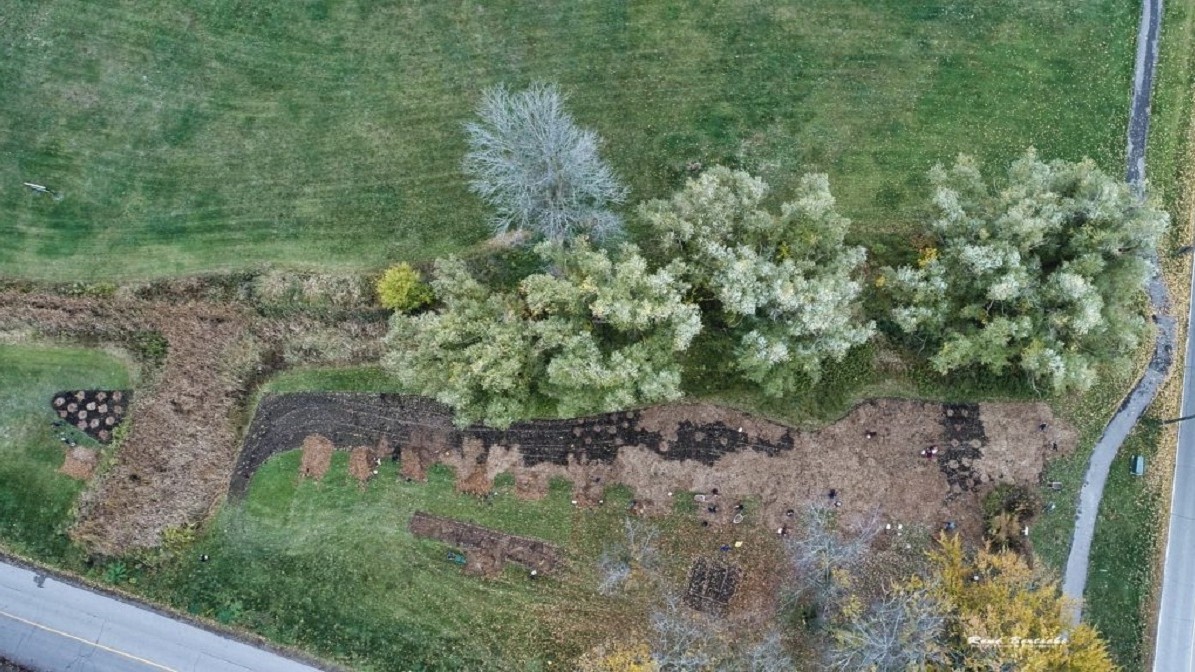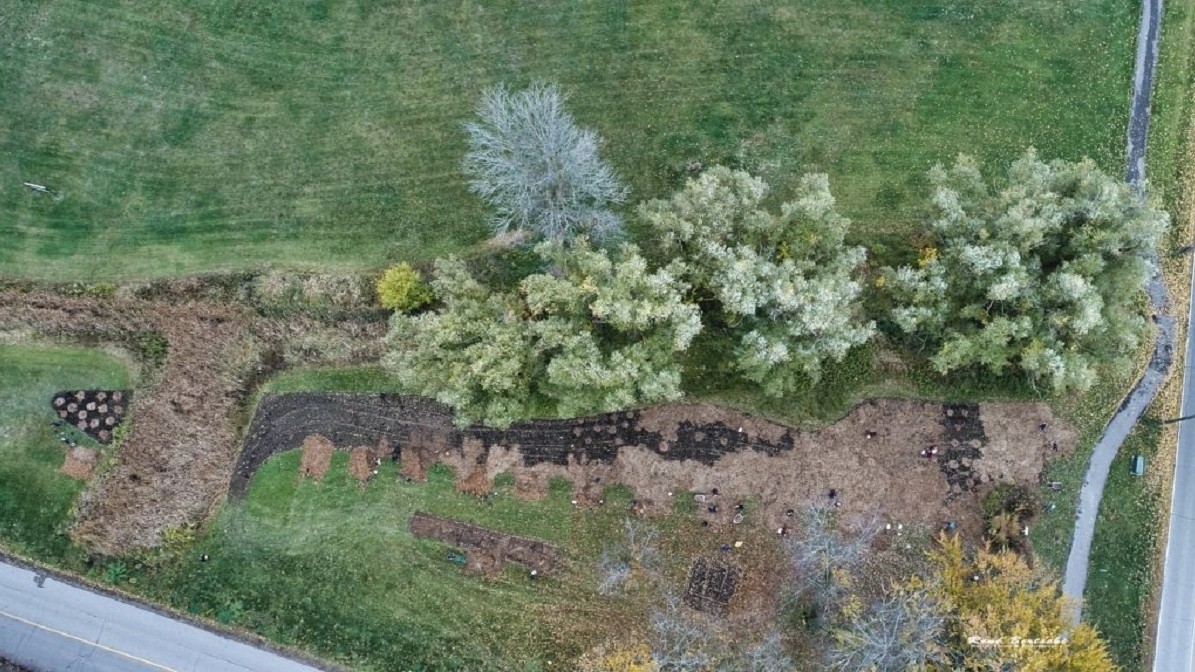The Niagara Peninsula Conservation Authority (NPCA) and Friends of One Mile Creek (FOMC) have worked together for 17 years to restore and revitalize Niagara-on-the-Lake's One Mile Creek. The partnership is now stronger than ever and poised to continue this important work for years to come.
"Friends of One Mile Creek have been instrumental in completing several restoration projects on public lands and helping raise awareness of the need to restore the One Mile Creek watershed,” says Stuart McPherson, Restoration Specialist at NPCA. “As great stewards and conservation champions, they have hosted several talks and information sessions, shared and promoted valuable information on native plants and stewardship opportunities, and have connected the NPCA with many landowners for prospective restoration projects.”
The mission of FOMC is to collaborate with the community and relevant agencies to work efficiently toward restoring and revitalizing the water, wildlife, and natural heritage and environment of the One Mile Creek.
Over the last 17 years, both organizations have undertaken and completed numerous projects and initiatives, including:
- In 2004, the first riparian area was planted, containing 1,584 wildflower plugs and 50 shrubs. Since then, more than 15 riparian planting projects have been completed.
- In 2005, following consultation with NPCA experts, and after years of advocating for a more comprehensive plan and long-term strategy to address the issues associated with the creek, the One Mile Creek Watershed Plan was established.
- In 2008, FOMC, with assistance from NPCA restoration experts, initiated a comprehensive stewardship guide to educate and inform landowners on the role they can play in the protection of water quality in the One Mile Creek and surrounding areas.
In recent years, the Town of Niagara-on-the-Lake was forced to remove more than 876 ash trees destroyed by the emerald ash borer— a beetle that feeds on ash species— 214 of which were located within the One Mile Creek watershed. Understanding that trees intercept rainfall, slow runoff, and allow water to infiltrate the root zone, which helps with flood control and biodiversity habitat, the organizations partnered to restore the local tree canopy in October 2020.
The NPCA scoped the riparian restoration project in an area adjacent to One Mile Creek and organized a tiling of sod to prepare for the planting. With the help of 50 volunteers, the organizations successfully completed the planting of 450 native plants and shrubs. This project was the first of a newly launched "Trees 4 NOTL" initiative by FOMC, and the riparian restoration project was one of 29 restoration projects completed in 2020 through the NPCA’s Restoration Grant Program.
“One of the guiding principles of the program is to embrace partnerships and foster collaboration in the Niagara Peninsula watershed. As such, we work closely with private and public landowners, incorporated NGOs and non-incorporated organizations like FOMC,” adds Steven Gillis, Restoration Specialist at NPCA. “It enables innovative approaches and solutions to improve water quality, wildlife habitat and forest cover, while monitoring and assessing changes in the watershed.” Annually, the NPCA accepts applications from organizations and landowners to provide financial incentives to implement voluntary stewardship projects.
The partnership between the NPCA and FOMC continues to develop deeper roots with an improved collaborative approach and has seen tremendous success in working together towards a common goal. Looking into the future, the organizations will continue to identify more planting sites and restoration opportunities.
“This collaboration has brought environmental awareness to many community members in and around the One Mile Creek watershed,” adds Klara Young-Chin, a founding Member of FOMC. “With less than 18% tree cover in Niagara-on-the-Lake, coupled with climate change, it is imperative that we continue to encourage landowners to stay informed and help contribute to increasing biodiversity by planting more native trees, shrubs and wildflowers. The NPCA's Watershed Report Card for Niagara-on-the-Lake showed a 'D' grade, but with increased planting of native plants in our watershed, over time it will improve water quality, needed for our health and safety, while restoring and conserving our natural heritage.”
To learn more about the Niagara Peninsula Conservation Authority, its restoration program and upcoming volunteer opportunities, visit www.npca.ca. Follow on Facebook and Twitter for more updates.
For more information about the Friends of One Mile Creek, visit www.friendsofonemilecreek.org. Watch the video of the NPCA and FOMC's latest project.
—30—
About NPCA:
The Niagara Peninsula Conservation Authority (NPCA) is a community-based natural resource management agency that works to protect, enhance, and sustain healthy watersheds. With 60 years of experience, the NPCA offers watershed programs and services that focus on flood and hazard management, source water protection, species protection, ecosystem restoration, community stewardship, and land management.
The NPCA is one of 36 Conservation Authorities in the Province of Ontario and manages 41 Conservation Areas within the Niagara Peninsula watershed held in public trust for recreation, heritage preservation, conservation, and education. These natural and shared greenspaces marry nature, culture, and adventure to create limitless opportunities for discovery.
About FOMC:
Landowners abutting One Mile Creek and other interested individuals formed the Friends of One Mile Creek in 2003 because of concerns regarding the condition of the creek and associated Lansdowne Pond. Working with the NPCA, the group has implemented numerous stewardship projects to revitalize the creek’s natural heritage. Friends of One Mile Creek (FOMC) is registered as a not-for-profit corporation in Canada as of April 2019.
Questions related to the above release should be directed to:
Erika Navarro, Communications Specialist
Mobile: 905-650-4027
enavarro@npca.ca

